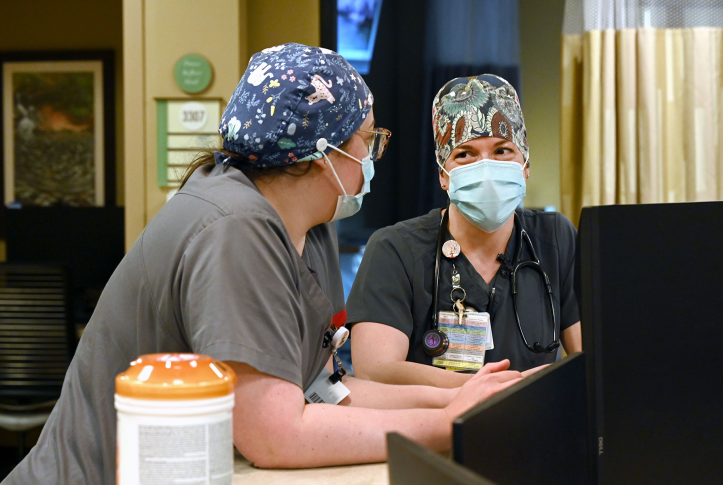Climate change — in the form of extreme heat, wildfires, and flooding, among other events — harms health and disrupts care delivery. At the same time, health care is a major contributor to environmental emissions. In the United States, the health care sector contributes approximately 8.5 percent of total national greenhouse gas emissions and toxic air pollutants. This is far greater per person than in any other nation. It has become evident to health professionals — who heed the core value of “do no harm” — that we must redesign care delivery to mitigate pollution while increasing health system resilience.
Many health care organizations are taking initiatives and demonstrating their commitment to reducing their carbon footprint. As of November 2023, 133 organizations representing 900 hospitals signed the Climate Pledge created by the White House and the U.S. Department of Health and Human Services. In addition, the National Academy of Medicine has developed an Action Collaborative on Decarbonizing the U.S. Health Sector, which is bringing leaders together to work on the issue. Medical professional societies have also joined in — the Medical Society Consortium on Climate & Health has 51 health professional society members, representing more than 700,000 clinicians. It aims to use its voice for policy reform to decrease fossil fuel use and improve public health.
Professional medical societies are well positioned to play an important role in this area. Clinical professional organizations determine evidence-based practice standards and are best suited to develop and implement actions for each specialty and across specialties. Societies can create dedicated environmental sustainability committees to improve knowledge, research, practice, and policy. Committee responsibilities can include:
- Developing graduate and continuing educational curricula, as well as board recertification questions, on environmental health and sustainable clinical practices. Most new physicians start their careers with little awareness of the impact of pollution on their patients, the impact of their clinical activities on pollution-related disease burden, and ways they could mitigate harm. These gaps in knowledge can be addressed at all levels of health professional education.
- Evaluating evidence for sustainable practices and generating and supporting a research agenda. There is a small but growing body of research in sustainable health care, including publications on medical devices, pharmaceuticals, clinical services, and health systems. Gaps in the research should be assessed and research funding developed.
- Developing professional sustainable practice standards and guidelines. Specialty committees should develop sustainable practice resources. Certain specialties, including anesthesiology, nephrology, and surgery, have already done so. Such resources can help clinicians interpret evidence, guide project development, and establish methods to measure and track specialty-specific pollution. They also can address questions about trade-offs between patients and public health — for example, whether it is appropriate to use single-use vs. reusable medical devices, from infection prevention, supply chain resilience, and environmental perspectives. The guidance could consider the impact of greenhouse gas emissions, as well as other types of pollution that harm biodiversity and human health (e.g., micro- and nano-plastics).
- Developing policy briefs and relevant advocacy work. Medical professional societies routinely work with external stakeholders, including policymakers and administrators. A dedicated sustainability committee can help advise organization leadership around environmental issues related to clinical practice. The committees can draft policy briefs to governmental and accreditation health care regulation agencies or promote ways governmental agencies can support sustainable care delivery. For example, this could include recommending affordable access to environmentally preferable medications like nebulizers, dry powder, and soft mist inhalers for the treatment of reactive airway disease.
Transforming care delivery is necessary to mitigate the health sector’s environmental impact and improve resilience in a rapidly changing climate. But system change requires the commitment of diverse stakeholders, both inside and outside health care organizations, and health professionals are best suited to lead change relevant to their clinical specialties. Medical societies have a crucial role to play in organizing efforts for their members, using best available evidence and continuous quality improvement methods, supporting research, and fostering lifelong professional development. Dedicating a committee to environmental health and sustainability is an important step in advancing this work, until a focus on climate change is well integrated into medical education and our health care system.


